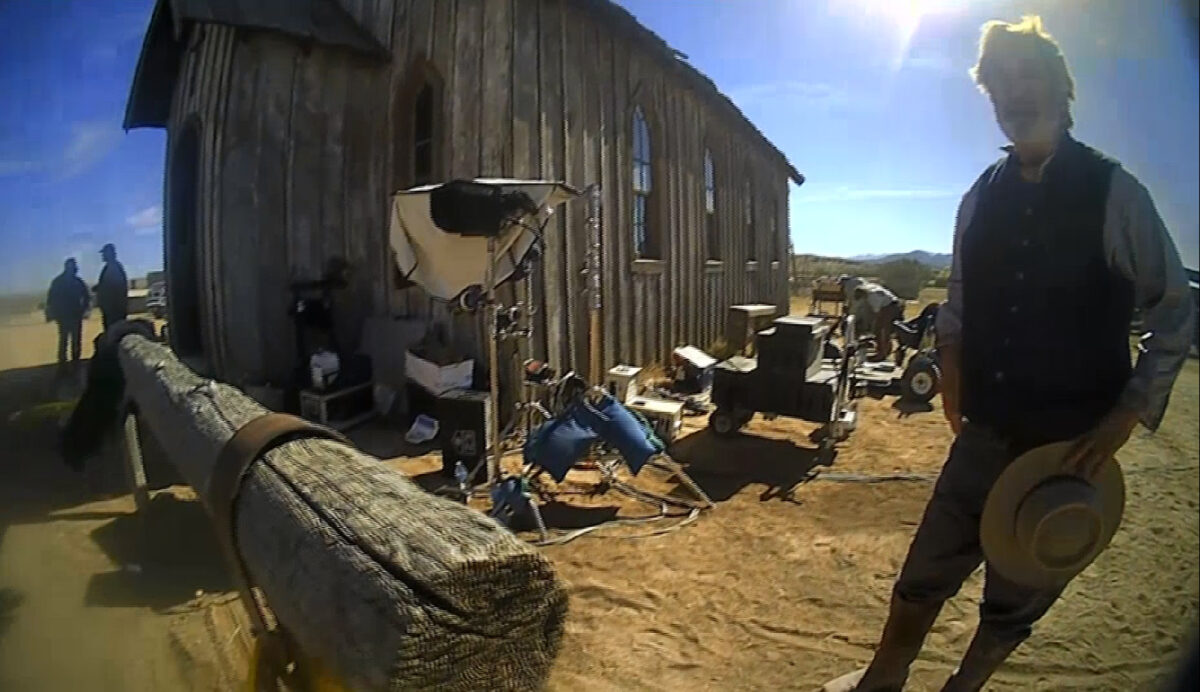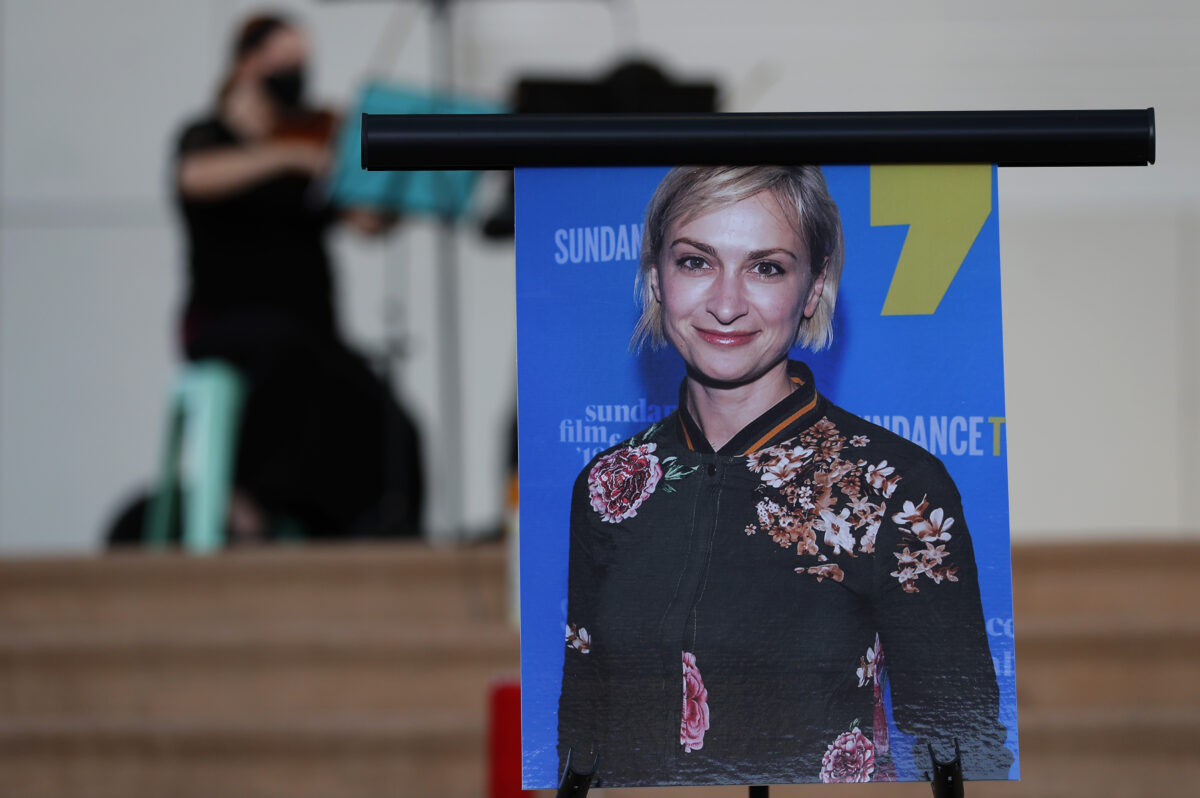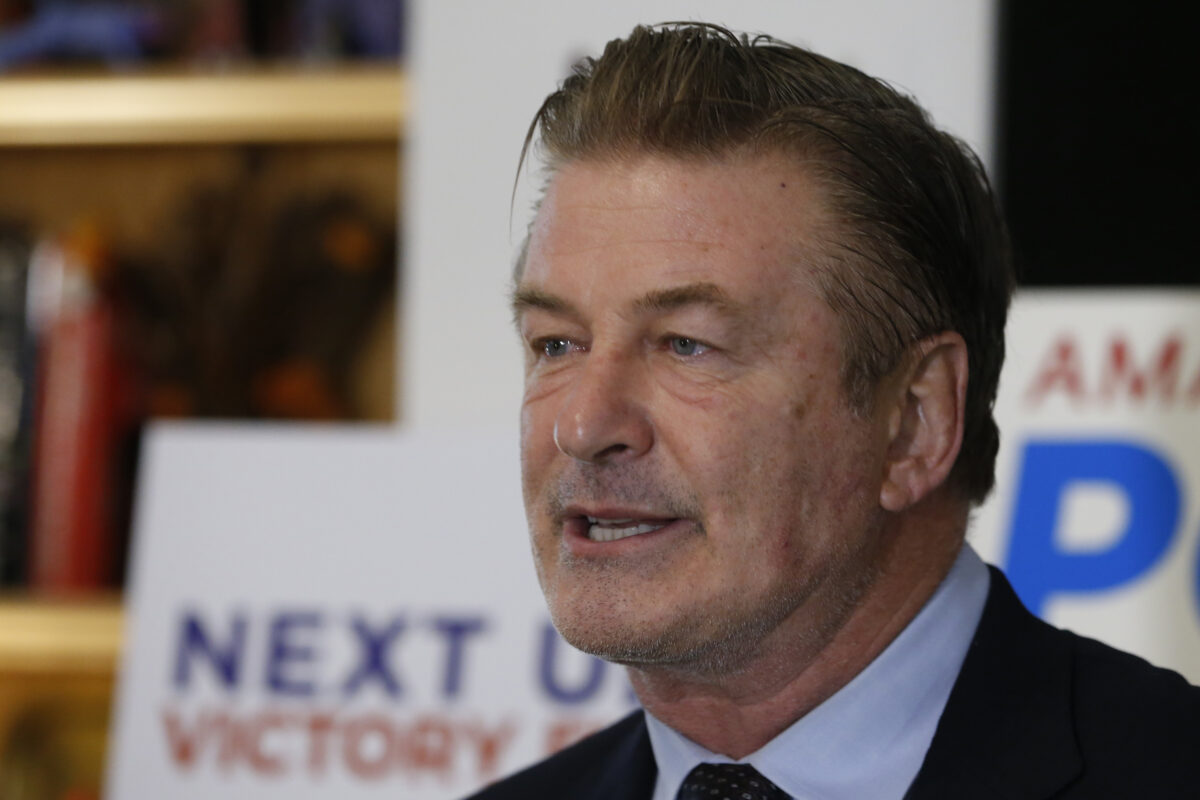


Alec Baldwin on Friday asked a judge in New Mexico to dismiss a five-year firearm sentencing enhancement in the charges against him, saying it is unconstitutionally based on a law passed after the shooting on the set of the film “Rust.”
“The prosecutors committed a basic legal error by charging Mr. Baldwin under a version of the firearm-enhancement statute that did not exist on the date of the accident,” a court filing from Baldwin’s attorneys said.
Baldwin and Hannah Gutierrez-Reed, the weapons supervisor on the set of the Western, were charged last month with felony involuntary manslaughter in the shooting death of cinematographer Halyna Hutchins.
Hutchins died shortly after being wounded during rehearsals at a ranch on the outskirts of Santa Fe on Oct. 21, 2021. Baldwin was pointing a pistol at Hutchins when the gun went off, killing her and wounding the director, Joel Souza. Hutchins’ parents and sister filed a lawsuit over the shooting Thursday, after a similar suit filed by her husband and son was settled.
Baldwin’s attorneys also filed a motion on Tuesday to disqualify the special prosecutor in the case, asserting that her position as a state lawmaker constitutionally prohibits her from holding any authority in a judicial capacity.
Baldwin’s legal team is mounting an aggressive legal fight against the charges before he has even made his initial court appearance, which is scheduled to take place by videoconference later this month. Baldwin has not been arrested.
“Another day, another motion from Alec Baldwin and his attorneys in an attempt to distract from the gross negligence and complete disregard for safety on the ‘Rust’ film set that led to Halyna Hutchins’ death,” district attorney’s spokeswoman Heather Brewer said in an email.
She added that the prosecution team “will review all motions—even those given to the media before being served to the DA. However, the DA’s and the special prosecutor’s focus will always remain on ensuring that justice is served and that everyone—even celebrities with fancy attorneys—is held accountable under the law.”
The manslaughter charges against Baldwin and Gutierrez-Reed include two alternative standards and sets of penalties, and a jury can decide which to pursue, according to prosecutors.
One version would require proof of negligence, which is punishable by up to 18 months in jail and a $5,000 fine under New Mexico law.
The second alternative is reckless disregard of safety “without due caution and circumspection.” It carries a higher threshold of wrongdoing and includes the gun enhancement that could result in a mandatory five years in prison.
But legal experts said Baldwin has a strong chance of seeing it thrown out.
“This is a violation of the ex post facto clause of the constitution,” said Neama Rahmani, president of West Coast Trial Lawyers. “The government can’t pass a law and retroactively punish someone under that law. The judge is likely going to toss that enhancement and so Baldwin is just looking at a maximum sentence of 18 months in jail.”
In court documents, the district attorney’s office said reckless safety failures accompanied the film production from the outset, and that Baldwin’s “deviation from known standards, practices, and protocol directly caused” Hutchins’ death.
They cited Baldwin’s failure as an actor to appear for mandatory firearms training prior to filming and his decision as a producer to work with Gutierrez-Reed, who was an uncertified and inexperienced armorer.
Baldwin’s attorney Luke Nikas said when the charges were announced that they were “a terrible miscarriage of justice.” He said Baldwin relied on the professionals with whom he worked and “had no reason to believe there was a live bullet in the gun.”
By Andrew Dalton


